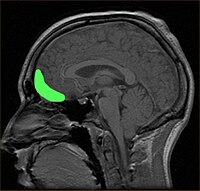
Photo from wikipedia
Little research has focused on motivational state-trait interactions to explain impulse buying. Although the trait chronic regulatory focus has been linked to impulse buying, no evidence yet exists for an… Click to show full abstract
Little research has focused on motivational state-trait interactions to explain impulse buying. Although the trait chronic regulatory focus has been linked to impulse buying, no evidence yet exists for an effect of situational regulatory focus and no research has examined whether the fit of chronic and situational regulatory focus can influence impulse buying with actual consumptive consequences rather than purchase intentions. Two laboratory experiments (total N = 250) manipulated situational regulatory focus before providing opportunities for impulse buying. In addition, cognitive constraint was manipulated as a potential boundary condition for regulatory focus effects. Situational promotion focus increased impulse buying relative to situational prevention focus in participants with strong chronic promotion, consistent with regulatory fit theory and independently of cognitive constraint. Surprisingly, situational promotion focus also increased impulse buying in participants with strong chronic prevention, but only under low cognitive constraint. These results may be explained by diverging mediating cognitive processes for promotion vs. prevention focus’ effect on impulse buying. Future research must focus more on combining relevant states and traits in predicting consumer behavior. Marketing implications are discussed.
Journal Title: PLoS ONE
Year Published: 2021
Link to full text (if available)
Share on Social Media: Sign Up to like & get
recommendations!